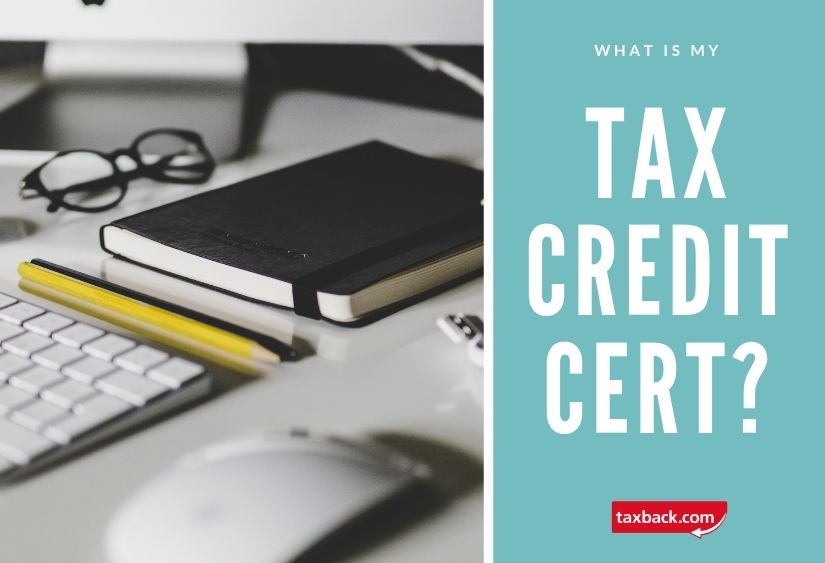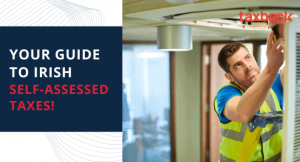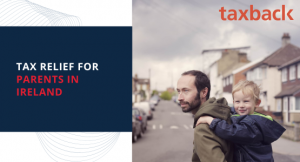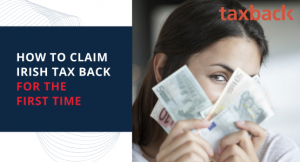What Is a Tax Credit Certificate?
Tax is a complicated but unavoidable part of life – there’s no two ways about it - especially when it comes to trying to understand the countless forms, complicated tax rates and straight up confusing terminology.
If you’re looking into filing your taxes or you want to claim a tax refund, you might have noticed the term ‘tax credit certificate’ pop up again and again – but what is a tax credit certificate and what is it used for?

Before we get into tax credit certificates, we should probably take a quick look at tax credits.
Don’t worry, it’ll only take a sec!
What is a tax credit?
A tax credit reduces your tax liability (that’s the amount of tax you pay in non-accountant terms). Everyone is entitled to Personal Tax Credits but there are other tax credits that you may be entitled to depending on your personal circumstances i.e. the Home Carer Credit.
Usually tax credits are given on a cumulative basis (meaning they’re given for a full year). So, whether you start working in January during the first few weeks of the tax year or you start working in July, 7 months into the tax year, you’ll still receive a full year’s tax credits.
Tax credits and deductions are distributed evenly throughout the year. If you’re working for the full year, your tax credits are spread divided into 52 weekly or 12 monthly equal amounts depending on how often you receive your pay check. If you would like to know more about tax credits then be sure to read our guide to understanding tax credits.
Now that we have that out of the way, let’s get to the real question…
What is a tax credit certificate?
A tax credit certificate contains information on which tax credits are being used to decrease the amount of tax that you pay. It also indicates whether or not you’re currently liable or exempt from contributing to the Universal Social Charge (USC).
Your tax credit certificate also states how your relevant tax bands are allocated if you’re taxes are jointly assessed between you and your spouse.
What can my Tax Credit Certificate be used for?
If you’re a PAYE worker, your tax credit certificate will be used by your employer.
But why?
Well, they’ll use it to calculate how much tax they should deduct from your earnings in each pay check.
If your employer doesn’t have access to your tax credit certificate, it will be impossible for them to decrease the amount of tax you pay meaning you’ll end up overpaying tax.
If you believe you’ve overpaid tax, you should claim it back! I mean, why let the government keep your hard earned dosh?
Taxback.com can help you claim, we’ll even check to see what tax credits you may be entitled to… and we don’t just help PAYE employees, if you’re filing your self-assessed taxes, we have a service for that too!
Need help filing your self assessed tax return?
How do I get my Tax Credit Certificate?
When you get a job for the first time, you’ll have to register your first job on Revenue’s myAccount.
You must provide details including your PPS number, your address and information about your employer. Revenue will then automatically send you a new Tax Credit Certificate each year.
Will my Tax Credit Certificate include tax credits that I’m entitled to?
In short, the answer to this question is no. Most likely, Revenue will only include PAYE and personal taxation credits.
There are lots of other tax credits available depending on your personal circumstances. Common tax credits include medical expenses, pension contributions and tuition fees.
If you’d like to find out more about what tax credits you can claim for, check this out or you might want to read our article on lesser known tax credits.
If all that research sounds like too much effort, you can always contact Taxback.com by Freephone, email or 24/7 live chat. A member of our team will answer any questions you might have and help you get the most from your tax refund.
Note: You’ll have to apply to Revenue if you wish to have tax credits added or removed from your Tax Credit Certificate. They will then provide a new, updated certificate.
PAYE Modernisation
From the 1st of January 2019, new changes were introduced to Ireland’s PAYE system. This is known as PAYE modernisation. The most important aspect of this is the introduction of RTT or ‘real time reporting’. This means employers must ensure that all payments and deductions are correctly calculated and reported in real time as part of the payroll process.
What this means for you is that you will not receive a P60 or a P45 payment document. Instead, Revenue will store this information online and you will be able to check it as you please.
Being caught out paying emergency tax will be less of an issue for employees because of this since your employer can easily access the information they need to prevent it. In fact, the only time you’ll be caught out with that pesky old emergency tax is if;
a) You have not provided your PPS to your employer (or)
b) If you’re not registered for PAYE. Please be aware that you can register for PAYE when you’re registering your job on your Revenue online account.
Confused About Your Tax Entitlements?
How do I claim PAYE tax credits?
You can claim tax back for the past 4 years meaning if you have any unclaimed tax credits, you could be due a big tax refund. Taxback.com will check as far back as four years to see if you're due tax back on credits like the Single Person Child Carer Credit or the Married/Civil Partner Tax Credit for instance. We will also check if you're due tax relief on things like medical expenses or home improvements.
Can I claim tax credits if I’m self-assessed?
Tax credits can be used to reduce your tax bill. If you’re using the self-assessed tax system, you should be aware of what tax credits you’re entitled to.
An example would be the Earned Income Tax Credit which applies to the majority of self-employed people. You may also be entitled to claim tax relief on medical expenses, Rent-a-Room relief and so on.
Want help with your taxes?
If you want help claiming your refund, we’ll check to see if you’re due any money back! Just shoot us an email, freephone us or use our 24/7 Live Chat to speak directly with a member of our team.
If we find you’re due a refund, we’ll give you a free refund estimate and if you choose to proceed, we’ll pop it straight into your bank account! Easy peasy!




